
verb 1 verb 2 verb 3 list Archives English Study Here
The past tense of 'meet' is 'met.'. It's an irregular verb, which means that it doesn't follow the usual pattern of adding '-ed' to the base form of the verb. Instead, you simply remove the 'e' in the middle of the word. Here are some examples of how to use 'met' in the past tense: I met my friend for lunch yesterday.
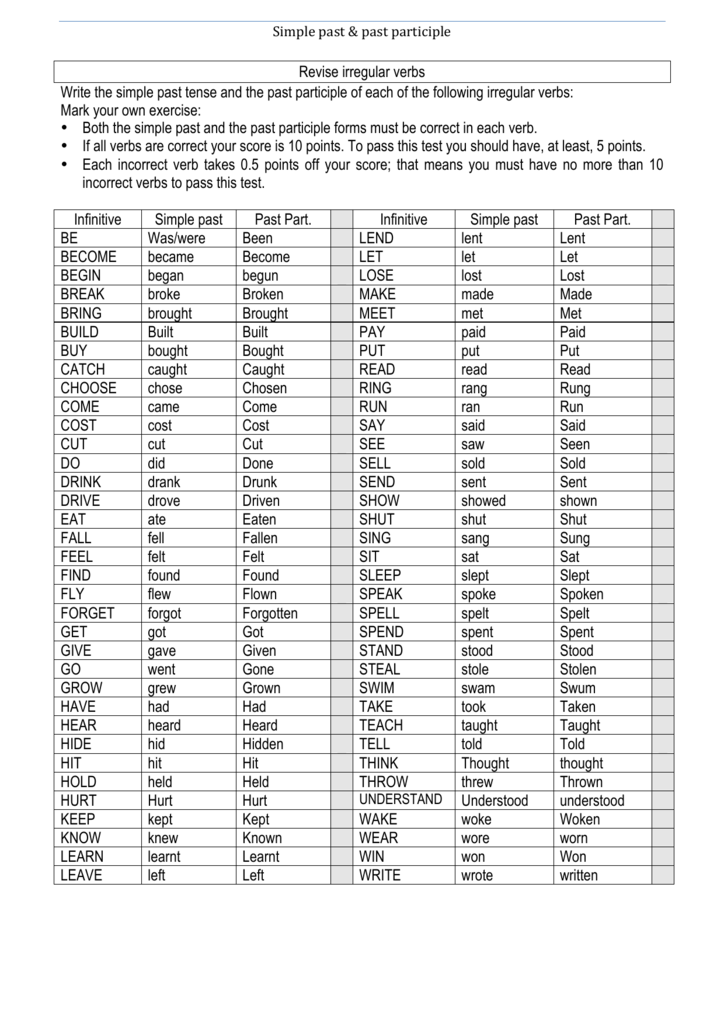
Past Tense Of Meet slidesharetrick
This is a reference page for meet verb forms in present, past and participle tenses. Find conjugation of meet. Check past tense of meet here. website for synonyms, antonyms, verb conjugations and translations

Verb Forms v1 v2 v3 v4 v5 pdf English Grammar Here Verb forms, English grammar, English
Do you want to learn how to use the verb meet in English? With PONS Verb Table for meet, you can find all the conjugations of this verb in different tenses, moods and voices. Whether you need to write, speak or understand English, this tool will help you master the verb meet.

Verb Tenses A Comprehensive Guide (With Examples)
the verb "to be" the verb "to have" Here are the next 10 most common irregular verbs in English: see, say, go, come, know, get, give, become, find, and think; Most Common Irregular Verbs The two most common irregular verbs in English are "be" and "have." These pages give more details about these two verbs: the verb "to be" the verb "to have"

English for Kids Step by Step November 2018
Irregular verb: To Meet. Verb conjugation: Meet - Met - Met. Meaning of 'To Meet' To make somebody's acquaintance; To be in the same place as somebody; Conjugation of verb 'Meet' V1 Base Form (Infinitive): To Meet: V2 Past Simple: Met: V3 Past Participle: Met: V4 3rd Person Singular: Meets:
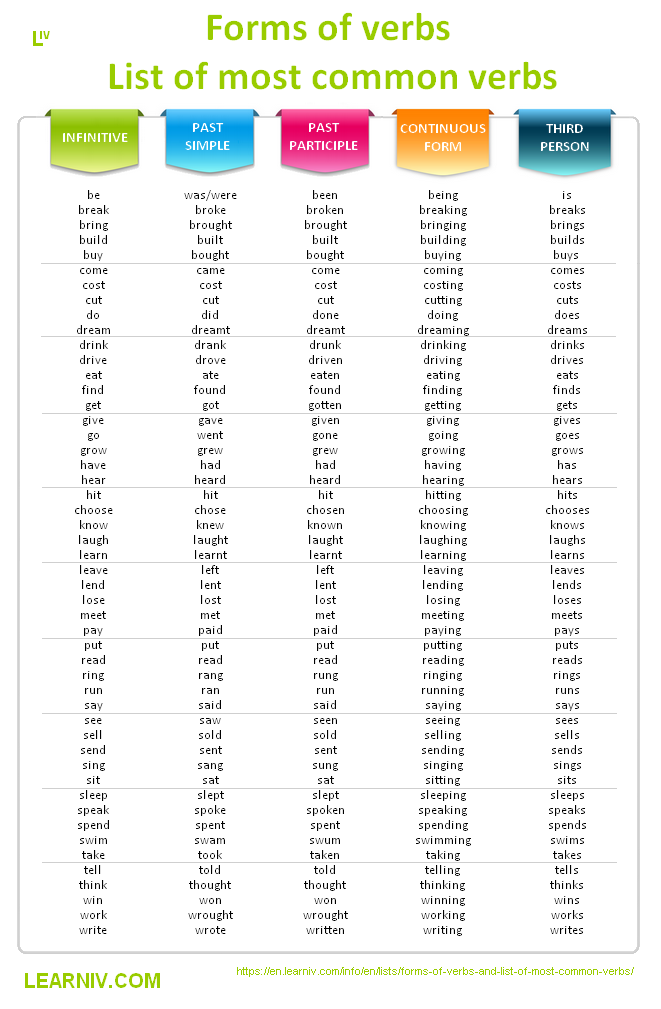
Do all the different English verb forms look too complicated to you? They don’t have to! In fact
Met is the past tense of the word meet. Met is the past participle of the word meet. meet past form, verb forms, v1v2v3, Infinitive
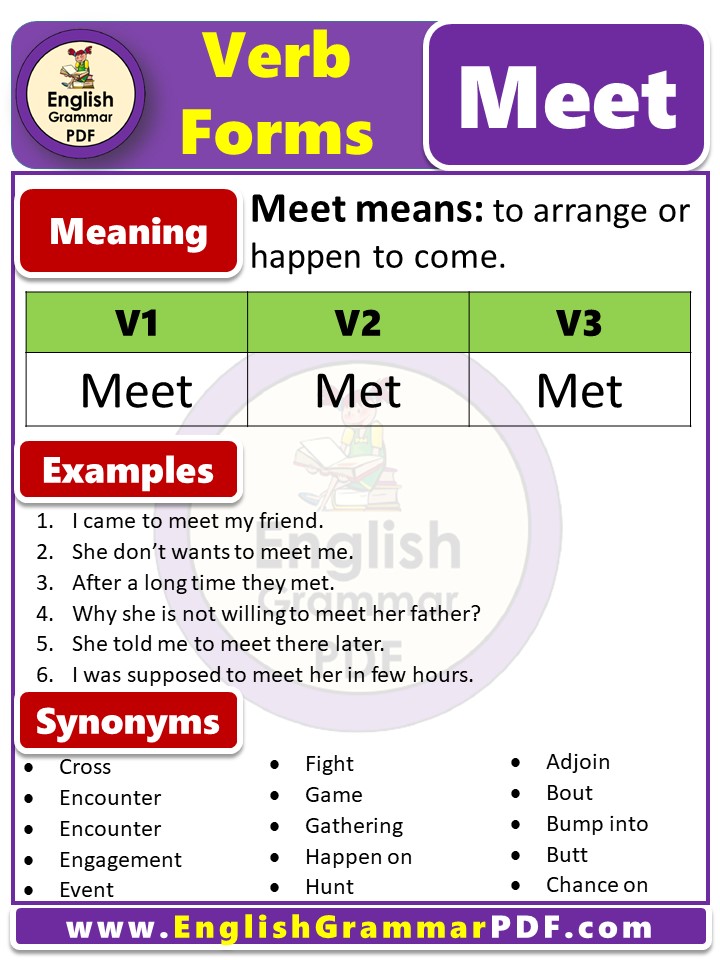
Meet forms of verb, V1 V2 V3 form of Meet, Meet past tense in English PDF English Grammar Pdf
MEET definition: 1. to come to the same place as someone else by arrangement or by chance: 2. to see and speak to…. Learn more.

Meet Past Simple, Simple Past Tense of Meet Past Participle, V1 V2 V3 Form Of Meet Meet means
feed - model verb ⓘ To form the preterit and past participle, change the final long vowel to its corresponding short vowel, retaining the final consonant (if present). Verbs that follow this model:
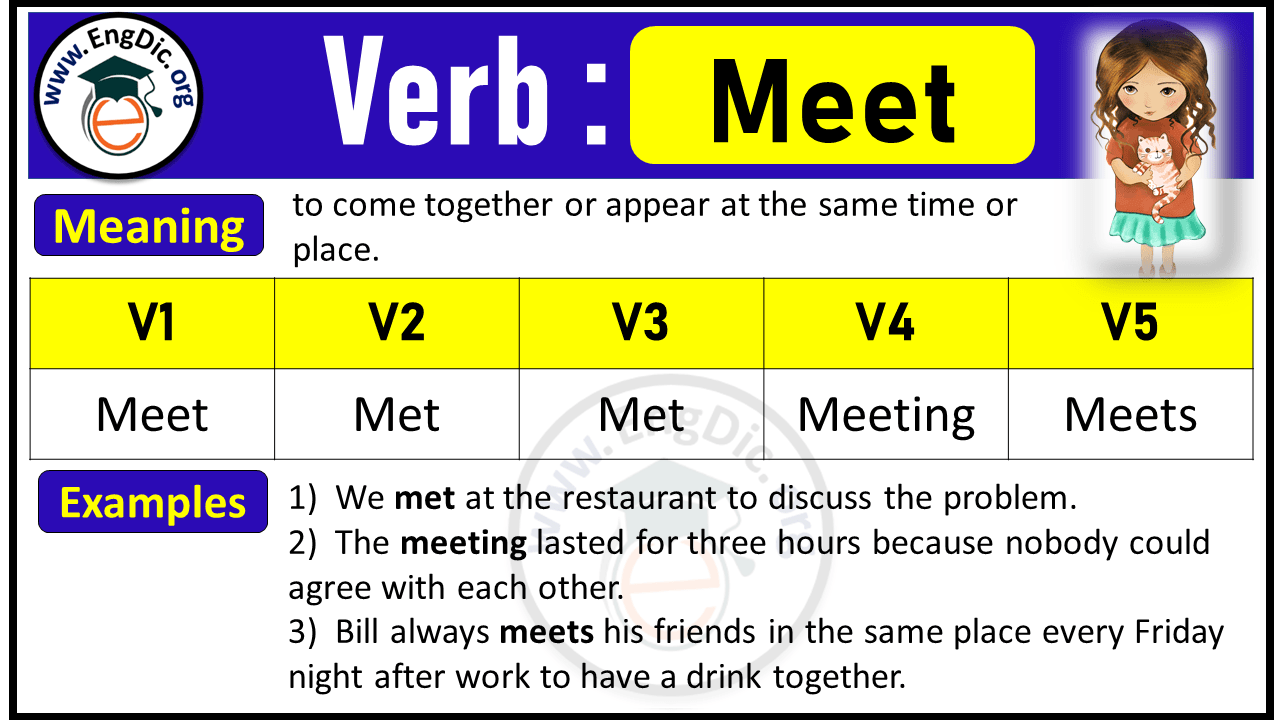
Meet v1 v2 v3 v4 v5 Archives EngDic
1 [transitive, intransitive] (also meet somebody's gaze, look, etc., people's eyes meet) if you meet someone's eye(s), you look directly at them as they look at you; if two people's eyes meet, they look directly at each other She was afraid to meet my eye. Their eyes met across the crowded room. She met his gaze without flinching.
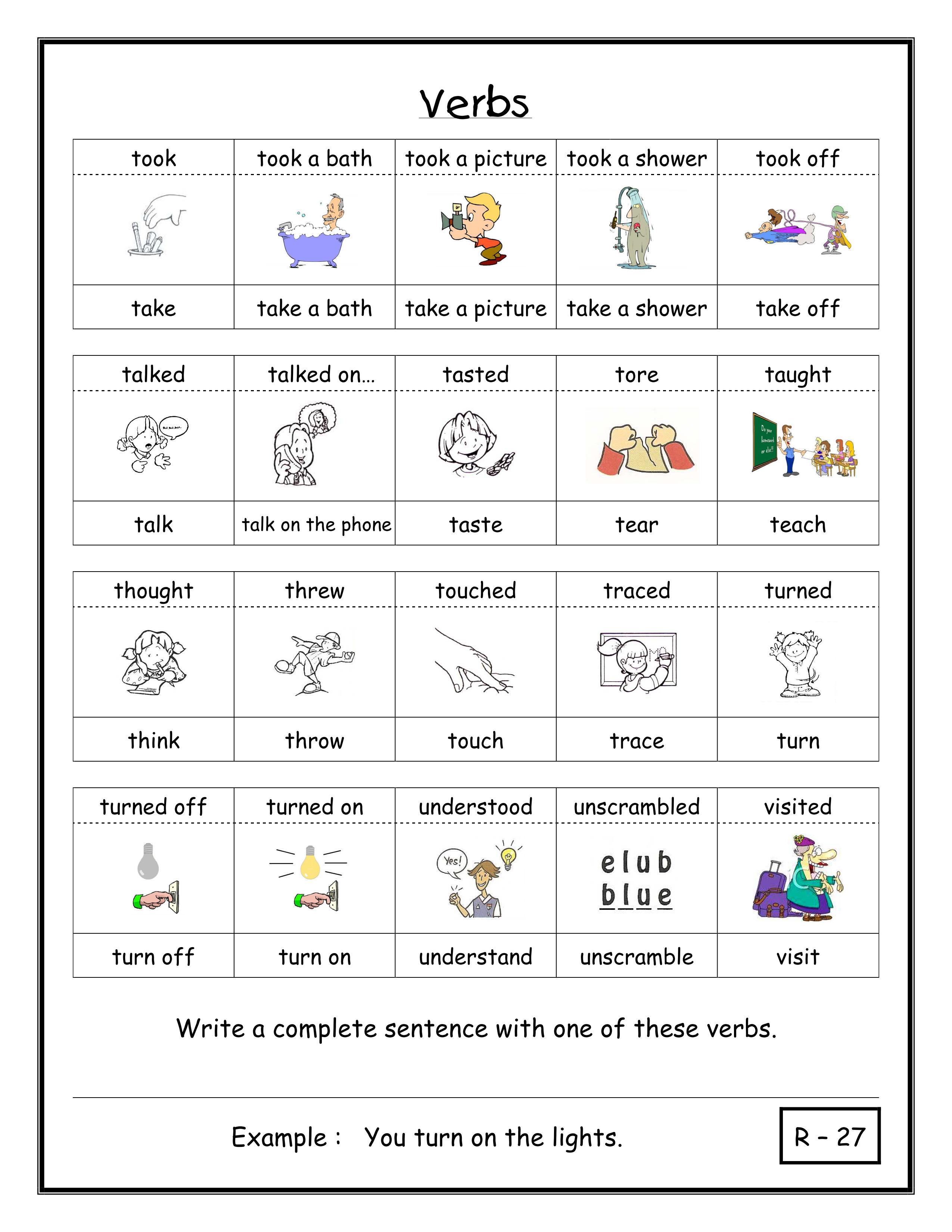
Verbs Miss English
Conjugation of the verb Meet in all tenses: future, present and past. 🎮 Conjugation trainer for memorizing forms.
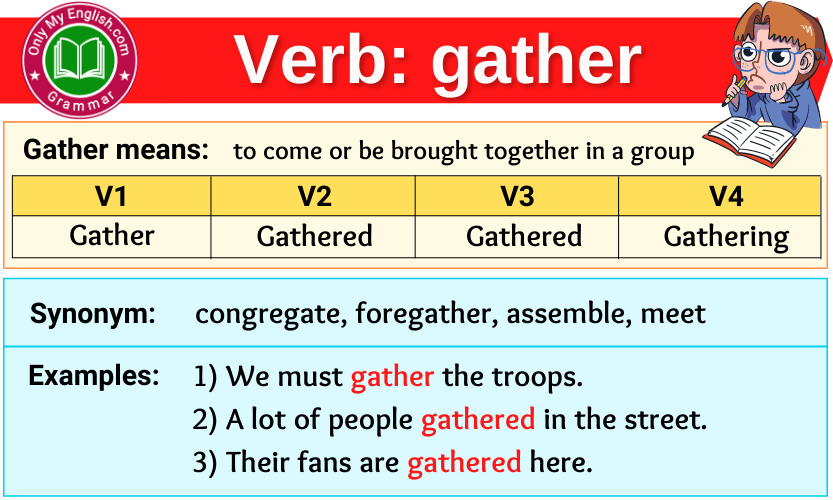
Gather Verb Forms Past Tense, Past Participle & V1V2V3
English: meet English verb 'meet' conjugated. Cite this page | Conjugate another English verb | Conjugate another English verb

Irregular Past Tense Verbs 75+ Important Irregular Verbs List ESL Grammar Irregular verbs
English verb conjugation to meet to the masculine. Irregular verb: meet - met - met.
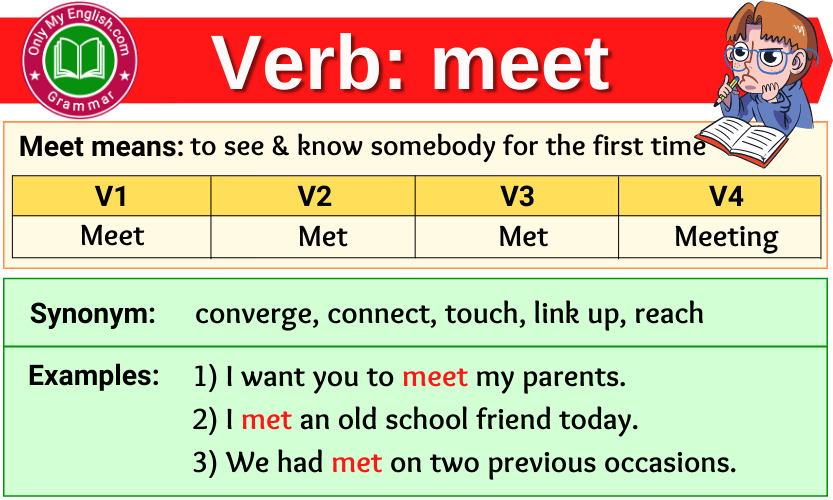
Meet Verb Forms Past Tense, Past Participle & V1V2V3 »
2. To come together with someone who you have arranged to see. Example(s): 1. We met at a restaurant in Paris.. The irregular verbs in the table below have the same pattern as meet. They are: - Verbs with the same past simple and past participle forms. - Verbs like 'bend, bent, bent'. Verb Simple past Past Participle; abide: abode/abided.

Conjugation Meet 🔸 Verb in all tenses and forms Conjugate in past, present and future
Conjugate the English verb meet: indicative, past tense, participle, present perfect, gerund, conjugation models and irregular verbs. Translate meet in context, with examples of use and definition.

120 Most Common Irregular Verbs English verbs, Learn english vocabulary, Teaching english grammar
Verbs; To Meet Conjugation; To Meet Infinitive: to meet Gerund: meeting Past participle: met Simple past: met Irregular forms Auxilliary verb Spelling change Use contractions. Positive Negative. Indicative. Positive Negative. Present. I meet I meet: you meet you meet: he/she/it meets he/she/it meets:
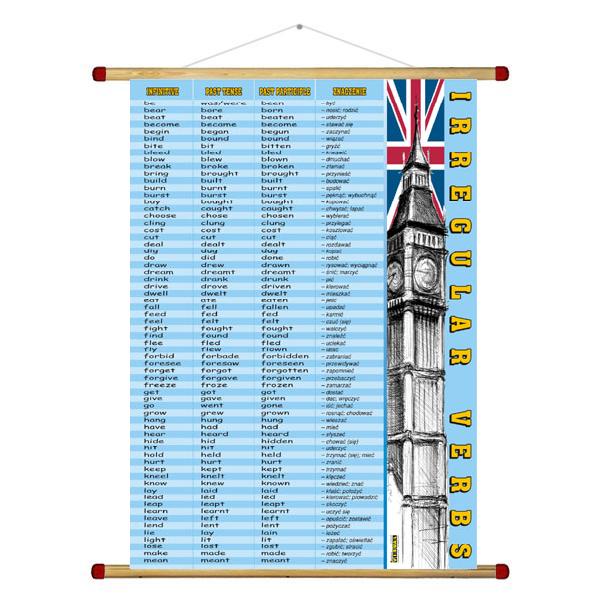
Irregular verbs 2 (meet... write), plansze dydaktyczne dla nauczycieli Pomoce Szkolne
Meet V1 V2 V3 V4 V5, Past Simple and Past Participle Form of Meet. When learning English you need to know the meaning of certain words first, and then sort the words appropriately according to grammatical rules. Verbs in a regular structure can be transformed with a simple rule, whereas in irregular verbs, this situation is slightly different.